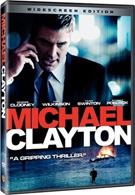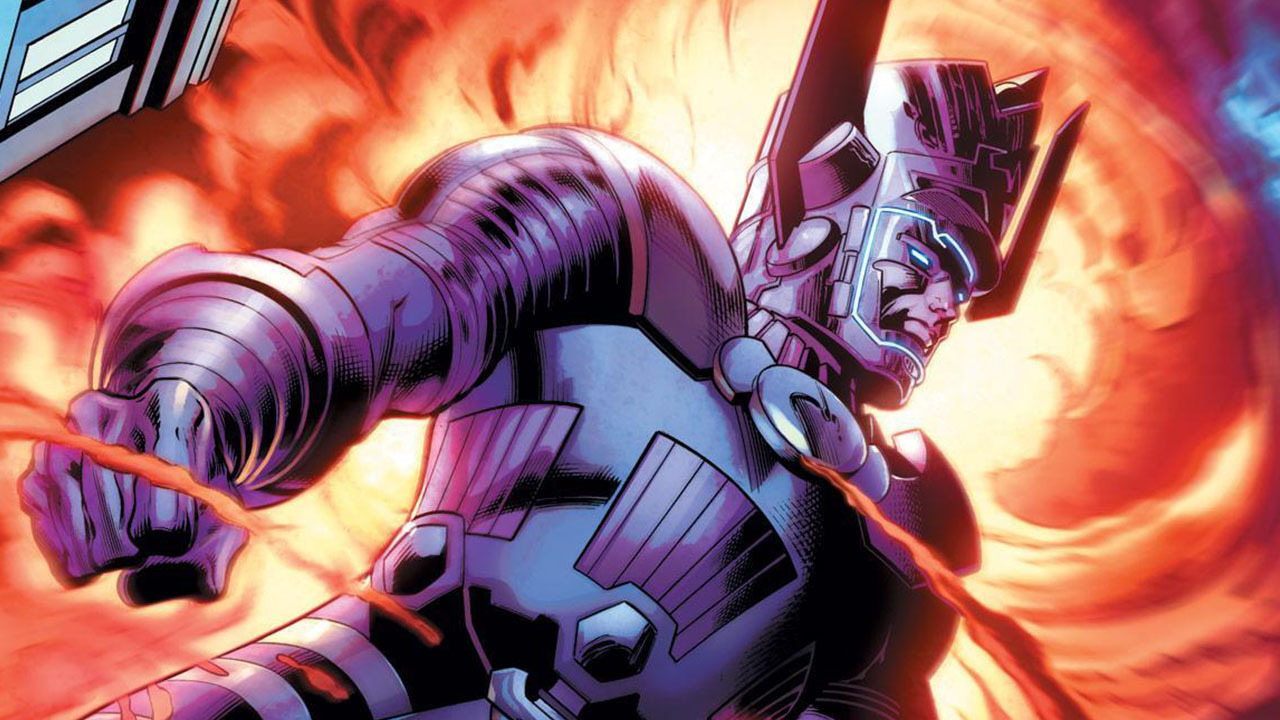Calling a movie a “character study” is an excellent way to get around plot holes or resolution issues in a movie. After all, by making a movie a character study, the audience is supposed to pay attention to how the character acts and reacts to circumstances around him, and, assuming the character is still alive when the end credits roll, the character goes on past the movie, so there doesn’t have to be any sense of finality. While Michael Clayton may be described as a legal thriller, I kind of think any movie that features the main character as its title is begging to be categorized as such. Besides, calling it a character study helps excuse some of the bigger problems of a rather disappointing picture. George Clooney is Michael Clayton, a former attorney who has given up his time in the courtroom and become a bit of a bagman for his company. As evidenced by the first few minutes of the movie, Clayton is now the guy the law firm calls when a prestigious client has suddenly found himself in a hit-and-run situation. He fixes problems, although this isn’t Pulp Fiction and he’s not Winston Wolfe, so his solutions aren’t always popular with everyone involved.
As with all good movies where the leading character and the film share the same title, the major plot of the movie follows Michael after he’s given reason to reflect on what he’s become over time (see Jerry Maguire). The cause for his reflection comes in the form of a mental breakdown by one of Clayton’s friends and colleagues, Arthur Edens (Tom Wilkinson), which also is a problem Michael is called in to fix. Arthur has spent six years defending a big corporation from a class action lawsuit and the weight of what he’s been doing for this obviously-guilty client and the length of time he’s been doing it suddenly have taken a toll on Arthur’s mental health. Arthur starts to question how he’s fallen so far from his initial ideals, which leads Clayton on a similar personal quest.
Where Wilkinson’s Arthur is allowed to be a bit over the top (this is a character who has lost a bit of sanity after all), Clooney remains rather stoic as Clayton, with the only real change in his demeanor being an infrequent underlying anger. Personally, I’d like to think that anger is aimed at Clayton himself as a kind of self-loathing, but in an attempt to build a more developed character the story gives Clayton lots of reasons to be angry. Clayton’s attempt at discovering both why he’s given up the courtroom and why his friend has gone crazy puts him into conflict with some of the people at his law firm and with the company Arthur was defending. Meanwhile, an independent endeavor at starting a restaurant failed, causing his partner-brother to skip town, and leaving Clayton owing lots of money to some form of organized criminals.
All of these attempts to round out Clayton leave the character far too flat. There’s too much for the character to be mad at, leaving no real depth for Clooney to pursue. The story gives Clayton a son he barely has a relationship with, but there’s no real cause to explore or mourn that lack of a relationship. As a result, Clooney basically just does his thing, playing the character similarly to Danny Ocean or any of the other performances he’s given. Thankfully, the less developed Arthur gives Wilkinson plenty of opportunity to throw caution to the wind and show off. From an opening voice over that sticks with the audience as a thematic summary of the film to some flat out spectacular on-screen time, Wilkinson is the true star of Michael Clayton.
As an Oscar contender, I feel better about Michael Clayton than I have about some previous years’ entries, but I still find it hard to believe that Clayton is one of 2007’s best. The story around the title character just tries too hard, resulting in a story that is stretched too thin and too shallow to be interesting. As a legal thriller, there isn’t a ton of thrills to the movie, and as a character study piece there isn’t enough of a character to study, although calling it a character study at least excuses the lack of resolution in the story. With two hours spent in the world of Michael Clayton, I would expect to have more of a feeling toward the character. Instead he’s just a bland face in a crowd, investigating his own motivations but not really coming up with any answers and leaving an audience that doesn’t really care anyway. The DVD release for Michael Clayton is what I like to refer to as an opportunity release. The movie has been nominated for several academy awards, so what better time to release it than right around Oscar time, cashing in on the opportunity that more people will have heard of the title. Unfortunately, like most opportunity releases, the result is something that has very little beyond the movie to offer.
Writer/director Tony Gilroy is joined by editor (and brother) John Gilroy for a feature length commentary track that accompanies the movie. The commentary contains some good anecdotes about how the movie got made, but it isn’t continuous, with several sizable gaps that make it easy to forget the commentary track is even on. Also the discussion rarely relates to what’s going on up on the screen. Still, it’s enough of a draw to cause me to watch the movie again, so that’s saying something. I just wish it offered a little more of an explanation of what’s happening in the movie at times.
The only other offerings on the DVD are several deleted scenes. Considering the movie already feels a little long, it’s good that these scenes were left on the cutting room floor. The best of the cut material features a scene with Clayton and his girlfriend, which explains a little more about some of Clayton’s knowledge of a potential merger for the law firm and giving a better example of how Clayton fixes problems than we actually see in the film. Other scenes piece together scenes that really didn’t need piecing together, like Clayton’s tailers discussing the construction of a bomb. Putting these back in the movie just would have made it even longer, and they don’t even add that much as deleted scenes.
The “Features” menu of the DVD is padded out a bit, with four options for only two actual features. The commentary track contains the option of subtitles for the hard of hearing and the deleted scenes can be presented with a commentary from Gilroy and Gilroy. These aren’t actually extra features, however, just the illusion of there being more here than there is.
If Michael Clayton actually picks up any of the awards its nominated for, expect Warner Brothers to leap at another opportunity for a better stocked version of this movie on DVD. Considering the competition, I don’t expect that to actually happen, so this nearly bare-bones edition may be the only DVD coming any time soon, but don’t be surprised if you see another release announced as soon as next week.
The Fantastic Four: First Steps Director Thankfully Didn't Rely Solely On Motion-Capture To Bring Galactus To Life, And I Couldn’t Be Happier With This Approach
Wait, Is Cate Blanchett Planning To Retire From Acting? Here’s What The Actress Says
If You Like Drop, There's Another Real Time Thriller You Need To Watch Immediately











